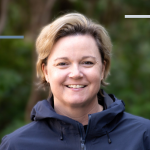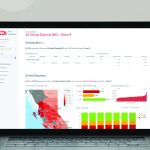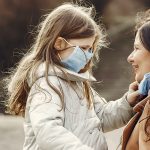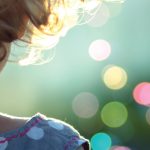Category: News

News
Scholar Profile: Megan Zeni is Expanding our Knowledge of Outdoor Play Learning in Elementary Schools
With over 25 years of experience as a professional K-7 educator, Megan Zeni currently teaches entirely outdoors in a public school outdoor and garden classroom.

News
Dr. Emily Jenkins Announced as New HELP Faculty Member
Dr. Jenkins, a registered nurse, is recognized as a leader in the youth mental health and substance use field and has established policy, practice and media channels that support knowledge mobilization and research impact.

News
20 Years of EDI Data Now Available via Interactive Dashboard
HELP is thrilled to announce the launch of the Early Development Instrument (EDI) Data Dashboard — an online, interactive tool available to the public that allows for the exploration of patterns and trends in EDI data from Wave 2 (data collected 2004-2007) through Wave 8 (2019-2022).

Events
CHEQ Trends & Connections with the EDI
Join Dr. Barry Forer along with other HELP staff on March 2 for a special webinar, exploring CHEQ data collected in fall 2022, as well as over the last four years, and what it reveals about the experiences of young children and their families across BC.

Highlights
Are experiences for families with young children in BC improving?
The CHEQ 2022 COVID-19 Rapid Report summarizes the data collected from parents and caregivers of kindergarten children in both the fall of 2021 and 2022, with the inclusion of additional questions about the impact of the COVID-19 pandemic on their experiences.

News
Scholar Profile: Orphée Tamba
Orphée Tamba is a Ph.D. student at UBC’s School of Population and Public Health and the Human Early Learning Partnership (HELP). Tamba’s current contributions to the analysis and knowledge translation of the various HELP tools within the Child Development Monitoring System include a special interest in exploring the social determinants of health and other factors associated with the developmental trajectories of children in sub-Saharan Africa and those of children in Canada.

News
Guest Column: The Time is Now — A Focus on Social and Emotional Learning
In January 2023, HELP hosted a 2-part webinar series presented by internationally renowned Social and Emotional Learning (SEL) scholar and former HELP Director Dr. Kimberly Schonert-Reichel, alongside researchers from the SEL Research Lab. The following guest column is a contribution from Dr. Denise Buote, SEL Research Lab Team Member, highlighting some key messages from the webinar series, along with links to the webinar recordings, presentation slides, and other related resources.

Events
Implementing a Mindfulness-Based Social and Emotional Learning Program with Early Adolescents During COVID: Lessons from the Field
This event will provide an overview of the connection between SEL and mindfulness and offer a unique view into the implementation of a mindfulness-based SEL program — MindUP for Middle School Students — with early adolescents during COVID.

Events
The state of social and emotional learning: What do we know? Where do we go from here?
This presentation by Dr. Kimberly Schonert-Reichl and Dr. Molly Lawlor will offer an overview of the field of social and emotional learning (SEL), examine the latest innovations in the SEL field, present new pioneering research on the effects of classroom-based SEL programming on student outcomes and review recent advances in SEL practice.

News
Knowledge Exchange Spotlight: Mariana Brussoni — Trusting partnerships create tangible impact
Dr. Mariana Brussoni, director of the Human Early Learning Partnership (HELP) and a professor in UBC’s Department of Pediatrics and School of Population and Public Health, is an internationally lauded public scholar. Her research focuses on children’s risky play – play where children take risks, such as climbing trees, building structures, or playing around fire. She examines how to shift parent and caregiver perceptions of risk so that children have more opportunities for taking risks in play.